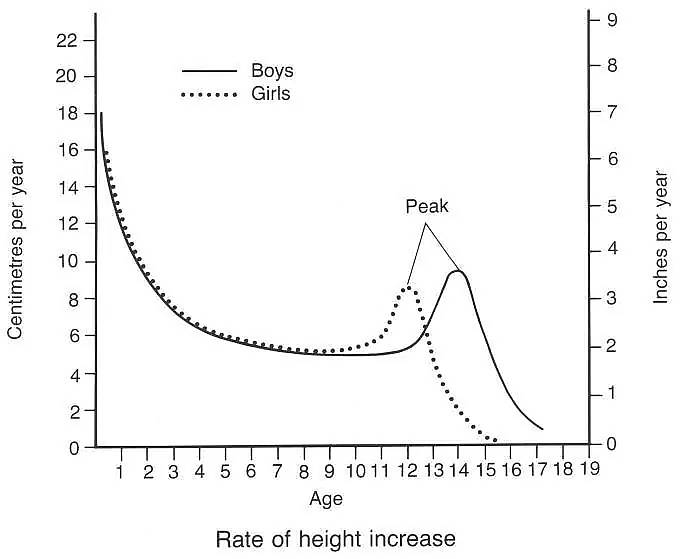Many girls begin puberty as young as age 6, but some girls don’t reach their full height until they’re well into their 20s. That’s why it’s important to know when do girls stop growing. This blog article will teach you everything you need to know about when do girls stop growing so that you can plan accordingly.
Table of Contents
What is the average age girls stop growing?
The average age girls stop growing varies from person to person. 👸🏻
However, according to the experts, there are generally two milestones when girls reach a certain size and growth begins to slow down: when children hit their early teens and around 18 years old.
Girls naturally grow more slowly than boys during their teenage years due to hormonal fluctuations and other factors. Girls also undergo various physical changes during puberty, such as widening of the hips and a growing bust, which can also impact growth rates.
What are the reasons girls stop growing
There are a few explanations as to why girls might stop growing at a certain age, but the most common reason is puberty. Puberty is the time when girls go through physical changes that make them ready for adulthood. These changes can include an increase in height and weight, the onset of menstruation, and changes in hair growth. Girls usually stop growing around age 14 or 15, but there is no specific cutoff point.
How can girls keep growing taller?
Girls stop growing at a height of 5’4″. This is due to the body’s natural growth process reaching a stopping point. Girls will continue to grow physically until they reach menopause, around the age of 55. However, there are things that girls can do to maintain their height and prevent shrinkage.
Did you know that girls do not grow as fast as boys?
The average height for a girl is about 5’4″, while the average height for a boy is about 5’9″. Girls reach puberty at around 12 years old, while boys reach puberty around 13~14 years old. This means that girls don’t reach their full growth potential until they are about 16~17 years old. Girls will continue to grow throughout their teenage years, but at a slower rate.
There are a few reasons for this difference in growth rates. One explanation is that girls have more body fat than boys, which helps to protect them during pregnancy and childbirth. Additionally, female hormones like estrogen help to keep the bones and muscles strong during development.
The bottom line is that girls don’t grow as fast as boys throughout their teenage years, but this doesn’t mean that they don’t continue to grow throughout their adult life.
What is the average age for girls to stop growing?
The answer may surprise you.
There is no definitive answer, as puberty is a complex process that can vary from girl to girl. However, there are some general trends that can be observed.
Generally speaking, girls reach their final height and size around 18 years old. However, this can vary somewhat depending on a number of factors, including genetics and nutrition.
In any case, it’s generally safe to say that puberty is a process that lasts for around 4-5 years, and at its peak girls will be growing at a rate of about 2 inches per year.
Conclusion
There is no single answer to when girls will stop growing, as this varies depending on a girl’s individual growth rate and genetics. However, there are some general guidelines that can help parents monitoring their daughters’ size and development.
Girls typically reach their final height and weight around age 18-20, but this may vary depending on their build and genetics. Girls who are shorter or have a low weight-to-height ratio may continue to grow for a few more years, while taller girls may hit their peak growth earlier. Girls who are genetically predisposed to being short or tall may also experience a different “growth spurt” in early adolescence than other girls.
Parents should keep track of their daughter’s height and weight every few months to monitor her growth accurately. Additionally, they should ask their daughter how she is feeling about her body and whether she feels pressure to stay fit or skinny. Parents can also talk to their pediatrician about how to monitor their daughter’s growth and ensure she is getting the best possible care.








